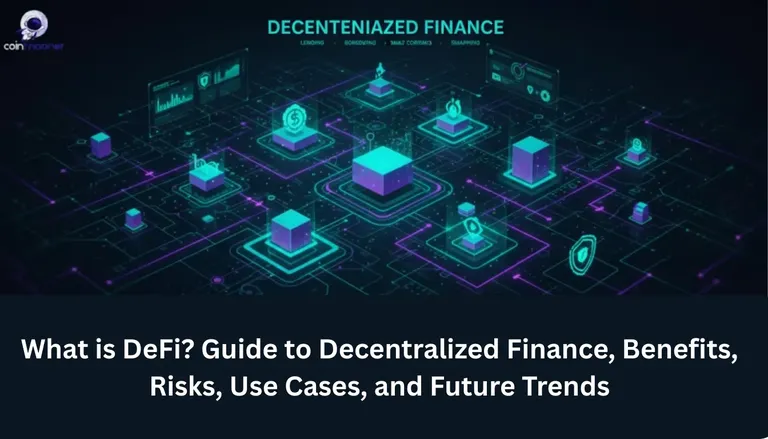Beyond the Hype: Discovering Blockchain Innovations That Are Redefining the Industry

In our time, many crypto enthusiasts from around the globe are realizing that the Web3 industry encompasses a vast array of different directions and projects. Concepts such as Play-to-Earn (P2E), metaverses, Launchpads, SocialFi, DeFi, meme tokens, and many others no longer seem surprising or innovative. These ideas have become an integral part of daily life in the crypto community and attract significant attention from investors, developers, and users alike. However, beyond these popular trends, numerous other projects are making substantial contributions to blockchain technology development. While these projects may be less known to the general public, they have dedicated followings and often provide invaluable benefits to other projects and end users.
Within the expansive and ever-evolving Web3 industry, some projects fall into a distinct category of blockchain technologies. They may not be widely recognized, but their impact and usefulness are equally significant. These projects are pioneering new technologies, implementing innovative solutions, and creating unique opportunities for interaction in the digital space. Their contribution to industry development cannot be overstated, as they enhance existing processes and open up new horizons for blockchain technology usage.
In today's news article, CoinMooner aims to introduce its readers to three remarkable projects within the Web3 industry. Many may not have heard of them, but these projects are advancing new sectors and driving progress. CoinMooner will delve into each one to provide a deeper understanding of how they operate and their impact on the entire blockchain technology ecosystem.
FILECOIN

CoinMooner wants to start our list with a project called Filecoin (FIL). Protocol Labs, founded by Juan Benet in 2014, created this project. Protocol Labs is also known for creating IPFS (InterPlanetary File System), a distributed file system that complements Filecoin. The main idea behind Filecoin is to create a decentralized marketplace for storing data, where users can rent out unused hard drive space to store data for other users. This provides more secure and cost-effective data storage than centralized solutions like Amazon S3.
Filecoin began its journey with a successful ICO in 2017, raising around $257 million. This campaign attracted attention from major investors and companies such as Sequoia Capital, Andreessen Horowitz, and Union Square Ventures. The Filecoin mainnet launched on October 15, 2020, marking a significant milestone for the project.
Filecoin substantially contributes to the Web3 industry by offering solutions for decentralized data storage. In traditional data storage systems, information is kept on servers controlled by central organizations, making it vulnerable to censorship and hacking. Filecoin, on the other hand, distributes data across many nodes, ensuring decentralization and high security. This makes it valuable for developers of decentralized applications (dApps), researchers needing secure storage for large datasets, and companies looking to reduce data storage costs while increasing security.
The Filecoin token (FIL) is used to pay for data storage and transactions on the network. Users storing data pay FIL tokens to those providing storage resources. Miners earn FIL by offering space on their hard drives and confirming transactions on the network. Filecoin's consensus mechanism is based on Proof-of-Storage and Proof-of-Spacetime, ensuring that data is genuinely stored and available over a specified time.
Filecoin stands out from other crypto projects with its unique concept of decentralized data storage. Its architecture and interaction with IPFS create an ecosystem where data can be securely and economically stored, accessed at any time, and controlled entirely by its owners. This opens up new possibilities for Web3 applications and contributes to developing a decentralized internet.
HELIUM

The following intriguing project in the Web3 industry that CoinMooner wants to discuss is Helium. It was founded in 2013 by Helium Systems, Inc., later known as Helium Inc. The project's founders include Amir Haleem, Shawn Fanning, and Shawn Carey. Amir Haleem, currently the CEO, is also known for being one of the early employees at EA Digital Illusions CE, where he worked on the Battlefield video game series.
Helium is a decentralized wireless Internet of Things (IoT) network. The project aims to create a global network where IoT devices can connect to the internet through decentralized nodes called Hotspots. These Hotspots provide network coverage and are rewarded with HNT tokens for their services.
A significant milestone for the project was the launch of the Helium network and its first protocol version in 2019. In 2020, Helium introduced LongFi, a technology combining the LoRaWAN standard with the Helium blockchain. LongFi enables long-range, low-power connectivity for IoT devices, making Helium an ideal solution for various IoT applications.
Helium substantially contributes to the Web3 industry by providing decentralized infrastructure for the Internet of Things. In traditional IoT networks, devices typically connect through centralized providers, which can be costly and inefficient. Helium offers an alternative using decentralized Hotspot networks, significantly reducing costs and improving network availability. This is particularly valuable for developers of IoT solutions, companies in smart cities, agriculture, logistics, and other sectors requiring comprehensive coverage and reliable connections.
The Helium token (HNT) is used to incentivize network participants. Hotspot owners earn HNT by providing coverage and transmitting data for IoT devices. HNT tokens can also be used for network transactions and purchasing additional services. Helium's consensus model, Proof-of-Coverage, ensures that Hotspots provide network coverage and transmit data.
Helium stands out with its unique concept of a decentralized IoT network using blockchain to manage and incentivize participants. This enables the creation of scalable, reliable, and economically efficient infrastructure for the Internet of Things, promoting the development of Web3 and decentralized technologies across various industries.
ARWEAVE

The last yet equally intriguing project in the Web3 industry that CoinMooner believes deserves mention in this article is Arweave. Founded in June 2017 by Sam Williams and William Jones, Arweave offers a unique solution for long-term data storage known as the "permaweb." This concept involves storing data indefinitely, ensuring its availability and immutability. Data on the Arweave network is stored on distributed nodes and protected using blockchain technology, making it resistant to censorship and loss. Arweave utilizes a consensus mechanism called Proof-of-Access (PoA), which continuously verifies that network nodes store data.
Arweave launched its mainnet in June 2018 and has garnered significant attention and support from prominent investors such as Andreessen Horowitz and Union Square Ventures. These investments have contributed to the development of the ecosystem and attracted developers to build decentralized applications (dApps) on Arweave.
Arweave makes a substantial contribution to the Web3 industry by offering an innovative solution for decentralized data storage. Unlike traditional cloud storage services like Amazon S3 or Google Cloud, which require regular payments for data storage, Arweave charges a one-time fee for storing data indefinitely. This makes it attractive to users who prioritize long-term data preservation without additional costs. Arweave is particularly beneficial for archivists, researchers, journalists, and organizations needing to preserve large volumes of data in an immutable format.
The Arweave token (AR) serves as the primary means of exchange within the network. Users pay AR to store their data, and miners who provide storage resources receive AR rewards. This mechanism incentivizes network participants to store and protect data, ensuring the network's resilience and decentralization. Arweave also features a voting mechanism that allows token holders to participate in protocol development and upgrades.
Arweave stands out with its unique concept of permanent data storage and the creation of the "permaweb" — a network of immutable web pages and applications that are accessible indefinitely. This opens new possibilities for creating and storing content on the internet, ensuring its availability and preservation. The project contributes to developing decentralized technologies and Web3, providing a reliable and cost-effective solution for long-term data storage.

Delving into the Web3 industry reveals numerous projects that are unique in their niches. These projects, though less known to the public, often play a crucial role in advancing blockchain technologies, rivaling more mainstream directions in significance. They thrive on innovative approaches and frequently garner support from influential individuals and companies who recognize the importance and potential of these concepts. Supporting such projects strengthens the entire industry, making it more diverse and resilient.
These initiatives introduce cutting-edge technologies, experiment with new interaction models, and create solutions that can redefine our understanding of blockchain capabilities. Often, these projects are ahead of their time and set trends that larger, more established market players later adopt. Thus, even in the shadows, they significantly influence the overall dynamics of Web3 development.
However, CoinMooner wants to remind you that technological advancements in the Web3 industry sometimes bring only positive outcomes. As blockchain technologies evolve, so do the methods of fraudsters. Bad actors continuously seek new ways to deceive and steal funds using increasingly sophisticated schemes. Therefore, despite all the advantages and potential of Web3, it is crucial to remain vigilant and take all possible measures to protect your digital assets.
CoinMooner strongly recommends employing state-of-the-art security measures to minimize the risk of fund loss. This includes using reliable hardware wallets, two-factor authentication, and other modern security methods. Regularly updating your knowledge about potential threats and adhering to best security practices will help safeguard your investments and allow you to enjoy all the benefits that the Web3 industry offers.
Disclaimer: However, we highly recommend conducting your research (DYOR) before investing. We do not guarantee that the projects listed on our website are entirely safe and transparent.










